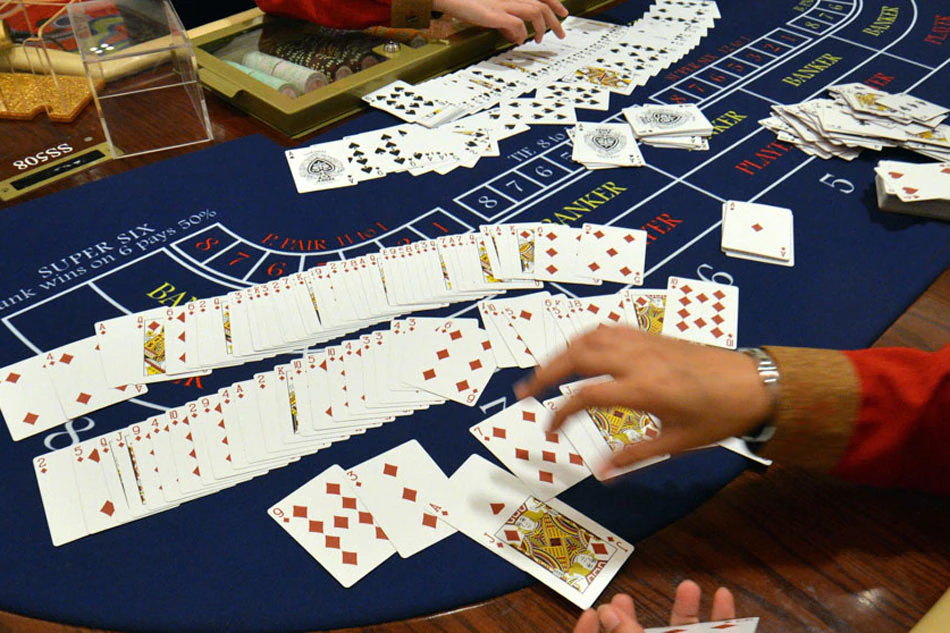The Psychology of Gambling

Gambling impacts individuals from all backgrounds and can have detrimental personal, professional and financial repercussions. As it’s a complex issue that needs professional treatment services for its treatment.
Even though gambling is an activity of chance, many gamblers think they can create winning systems or strategies. This cognitive distortion could be caused by pride, ego or sense of despair experienced by gamblers who have lost money.
1. It’s thrilling
Gambling involves taking risks in hopes of reaping a reward, which can be an exciting venture, but can quickly lead to financial distress if mismanaged. People with gambling disorders are especially prone to chase losses and accumulate debt – creating lasting effects for themselves, their family members, and those around them.
People love taking risks for many reasons, including the adrenaline rush they get from engaging in dangerous activities like racing cars or using drugs. While some individuals may be genetically predisposed towards such risk-taking behavior, others could be affected by social influences like their environment and culture.
One study revealed that genetic variants associated with dopamine receptors make people more prone to thrill seeking, which may help explain why men tend to take more recreational and financial risks than women. Gender differences in risk-taking have deep-seated roots: males must compete more fiercely with one another for sexual encounters and demonstrate their sexual fitness through daring exploits to show they’re fit enough partners.
2. It’s a challenge
Risking something unknown challenges us in ways we never anticipated, forcing us to confront fears and expand. Additionally, taking risks helps strengthen resilience and resourcefulness, often teaching us something about ourselves along the way – be it pushing oneself into a bungee jump or placing an unlikely bet in blackjack.
Some research suggests that people who take more risky decisions may be more at risk of gambling problems; however, no clear personality profile for problem gamblers has emerged in literature so far; studies have identified elevated scores on traits like impulsivity and sensation seeking.
Researchers have discovered that pathological gamblers’ brains react differently than recreational or social gamblers to images associated with casinos and betting, due to cognitive distortions allowing an overinflated sense of skill, probability and winning during gambling (see Ladouceur and Walker 1996; Clark 2010). This may explain why certain people find more satisfaction from placing riskier bets than entering lottery draws.
3. It’s fun
Many people enjoy gambling for pleasure without it becoming an addiction. Some can leave the table or slot machine after just a few rounds, having found satisfaction from playing. Others, however, cannot stop themselves and that’s when things can start going downhill quickly.
Reasons behind problem gamblers’ continued gambling may include partial reinforcement. This occurs when actions don’t consistently reward or punish you in equal measures; rather, these results cause them to believe that if they continue taking risks they will eventually pay off.
Gamblers tend to get excited by the prospect of winning money and are motivated by this hope that more cash may come their way. It is important to keep in mind, however, that chances of winning do not increase with each coin flip; their probability stays at 50% each time it comes out tails.
4. It’s rewarding
Most people understand the negative aspects of gambling, but few know its positive potential. A research project from Southern Illinois University’s Behavior Analysis and Therapy program revealed that when someone wins big at gambling their feelings become elevated and they become happier; when hitting a jackpot you experience a surge of dopamine that helps make you feel great.
Reward-oriented gambling may be one of the driving forces behind why so many use it as an inappropriate coping mechanism to relieve emotional distress and tension, with its ability to narrow focus and produce dissociative states providing an escape from responsibility, issues or anxieties (Blaszczynski & McConaghy 1989; Petry 2005).
Studies have not identified an overall personality profile of problem or pathological gamblers; however, studies have demonstrated elevated scores on some traits like impulsivity and sensation seeking. Furthermore, cognitive influences such as an illusion of control, incorrect beliefs about probability and skill, or biased evaluations may contribute to maintaining gambling behaviors.






